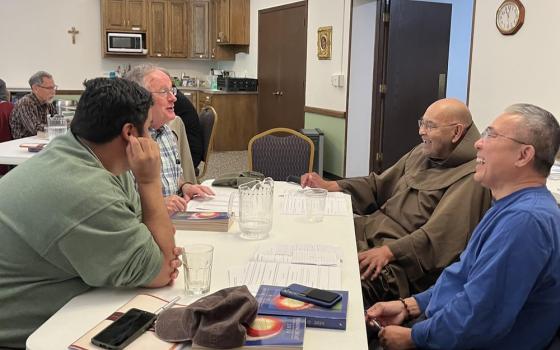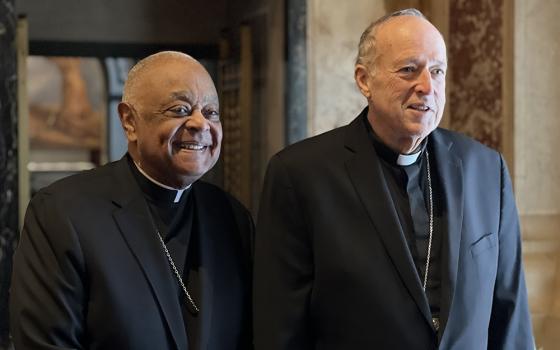A recent report from Duke University praised U.S. and Canadian Muslim leaders for fighting to keep Islamic radicalism out of their communities by condemning terrorism, self-policing, and becoming active in politics.
Within days, in what seemed to confirm the "Anti-Terror Lessons of Muslim Americans" report from Duke, a group of 20 imams -- 19 Canadian, one American -- issued a fatwa, or religious edict, condemning Islamic extremist attacks as an attack on all North American Muslims. The fatwa urged rank-and-file Muslims to "expose" radicals, and relay the message to Muslims abroad that they have religious freedom.
Even so, experts warn that fatwas and similar efforts by Muslim leaders do not guarantee that Muslims will be immune to terrorism, especially in a world where many young Muslims resent U.S. foreign policy and can access extremist propaganda with just a mouse-click.
"If policies don't change, there are very few things we can do to combat the resentment these youth feel," said Ebrahim Moosa, an Islamic Studies professor at Duke who co-authored the report.
Besides the abundance of extremist propaganda on the Internet, Muslim American leaders face other challenges in dissuading their followers from extremist messages:
'Every imam is a pope'
For starters, a decentralized leadership structure leaves the community without highly visible authority figures that young Muslims can emulate. This lack of visibility, coupled with the organizational immaturity and disconnectedness of Muslims in America, results in fractured audiences. Messages encouraging peace are not disseminated as extensively as in other, more established religious communities in North America.
"Every imam is a pope. That's the biggest problem," said Imam Syed Soharwardy, founder of the Islamic Supreme Council of Canada, the group that issued the recent fatwa. "The solution is to bring like-minded imams together. We don't need a central body to do this."
Despite these difficulties, Muslim leaders said their efforts do have reach. Soharwardy said the 20 imams who signed the fatwa represented some 18,000 followers. "Our congregations overwhelmingly and enthusiastically accepted this fatwa," he said.
Internet extremism
Sheila Musaji, founding editor of the Web site www.theamericanmuslim.org, said there is extensive online material on YouTube and elsewhere where Muslims condemn terrorism, but even more extremist material is easily accessible.
"If they want to find it, they will find it," said Musaji, whose Web site has an extensive list of essays by Muslim American leaders condemning terrorism and calling their followers to confront it. "The question is, how do you attract young Muslims to these positions?"
Skeptical audiences
Moosa said a big part of the problem is that many young Muslims in the West view U.S. foreign policy in Afghanistan, Iraq and Palestine as injustices, especially because of civilian deaths in U.S.- or Israeli-backed attacks.
Some online responses to the fatwa illustrate the skepticism and other difficulties that greet such efforts. At Islamicity.com, a popular Muslim American Web site and discussion forum, views were split on the fatwa.
"Is this not a way forward to show the world that Islam does not condone this type of extreme behavior?" asked one participant, to which another responded, "I would have less of a problem if these same people would take a stand and condemn the violence committed by the governments of THEIR societies."
Religious illiteracy
Exacerbating the problem, Moosa added, was a failure of Muslim American leaders to provide young Muslims with a "religious and political literacy" to understand these issues in a nuanced manner. "They don't always have adequate ways to deal with this," he said. "They see this simply as an attack on Islam."
Moosa said U.S. Muslim leaders need to persuade the U.S government to take seriously the grievances voiced by Muslim Americans if they want to be seen as credible partners in combating extremism. "You can't whitewash those grievances for young people; otherwise the messenger loses all credibility," said Moosa.
Imam Yahya Hendi, a Muslim chaplain at Georgetown University, agreed.
"We will issue our fatwas and engage with the Muslim world, but the Muslim world will ask us, 'OK, have you delivered on your own promises?' "
Culture clash
Another problem is that many imams in North America are immigrants who are not well-schooled in Western values or cultural mores. Experts say Muslim American leaders also need to be better educated about what Islam teaches about Muslims' civic responsibilities, how to address grievances, and the compatibility of Western values with democracy.
Soharwardy cited the need for moderate Muslims to confront "hate-mongers." "We have to go after these people at the source," Soharwardy said. "We need to debate and publicly challenge these people.
While it may be impossible for Muslim Americans to stamp-out all radicalism, vigilance is not fruitless, and remains ever necessary, said Hendi.
"First, you have to believe that there is no limit to what you can do," he said. "The fact that we can't stop all of it doesn't mean that we have nothing to do."


